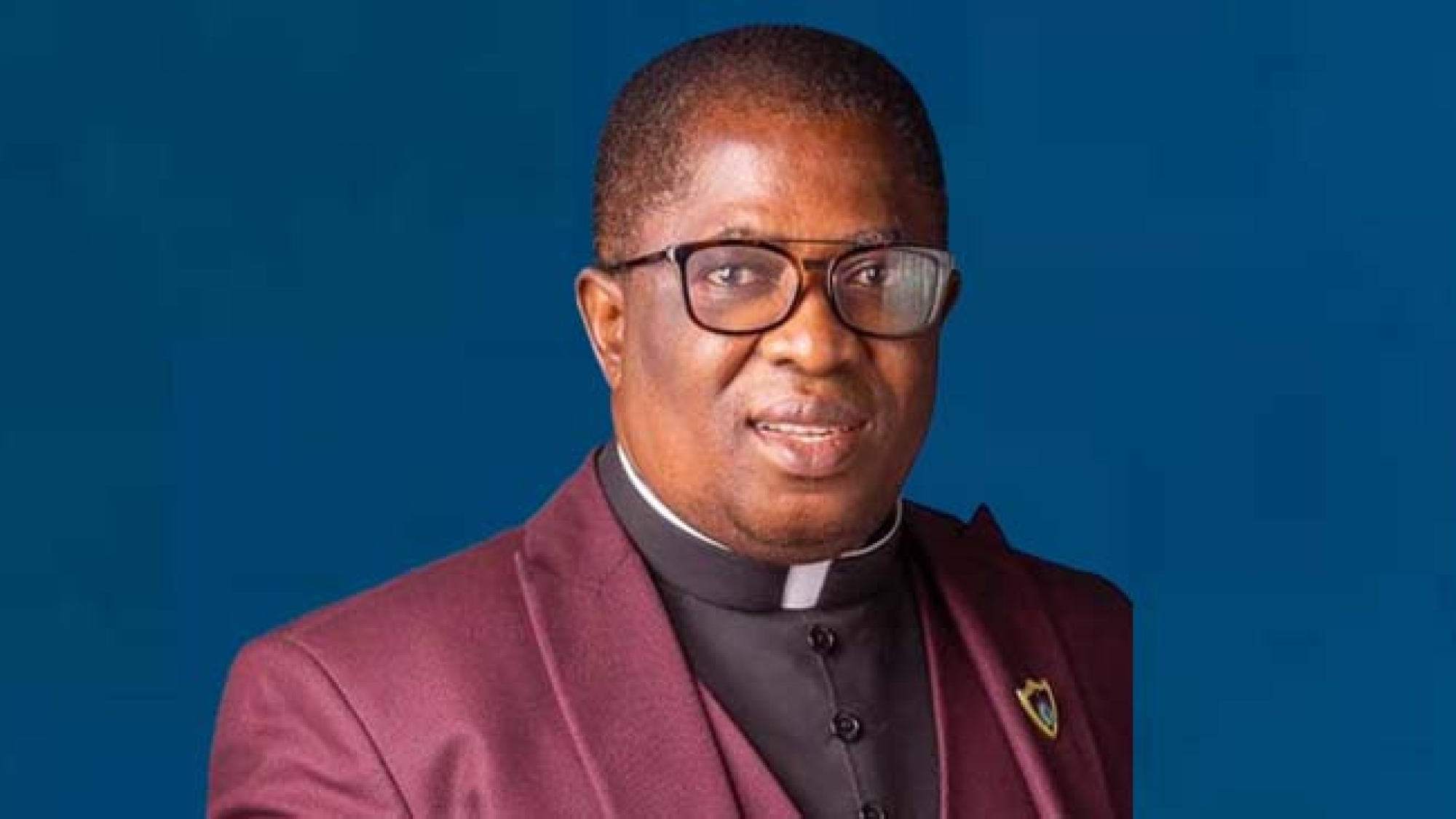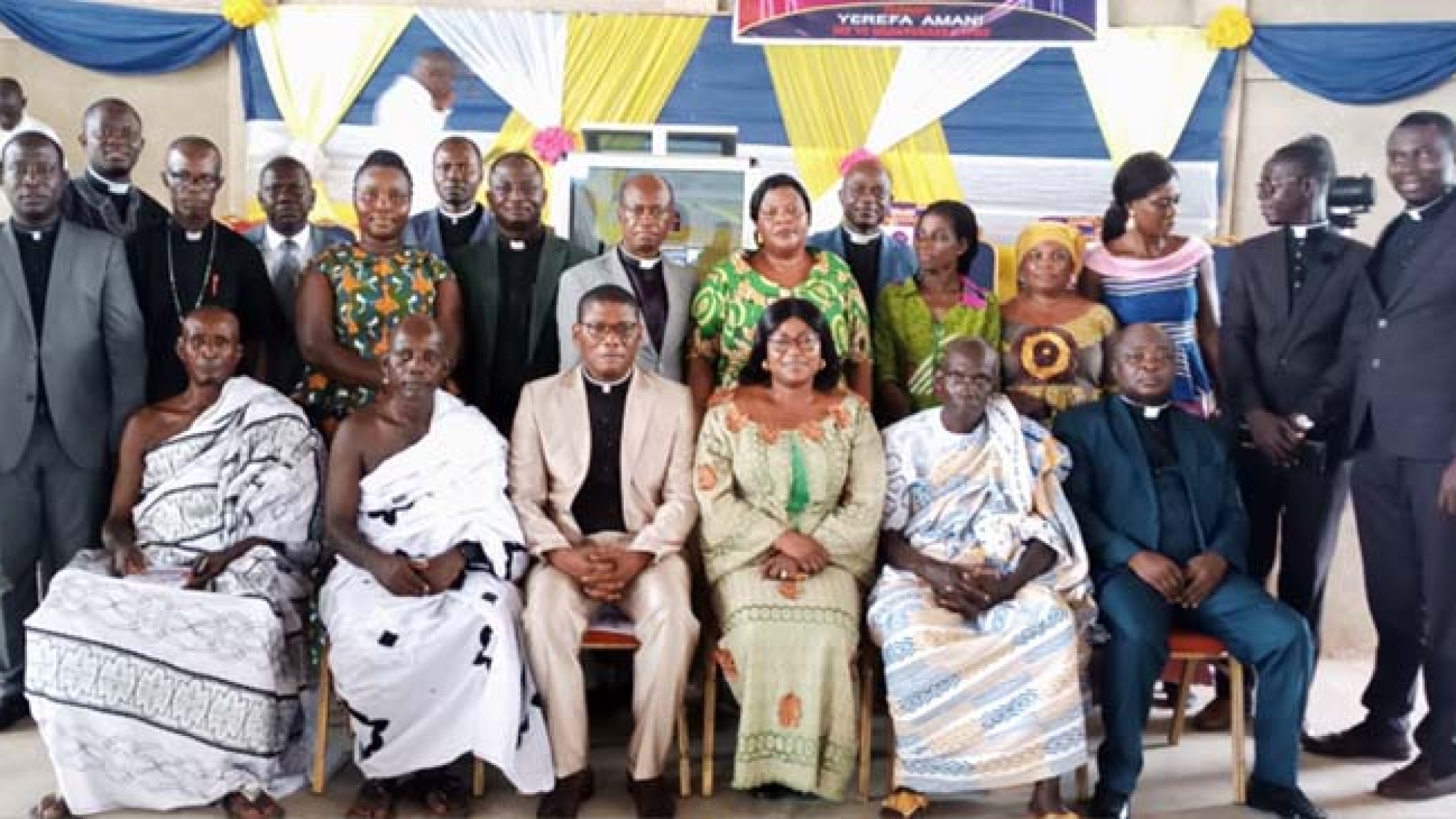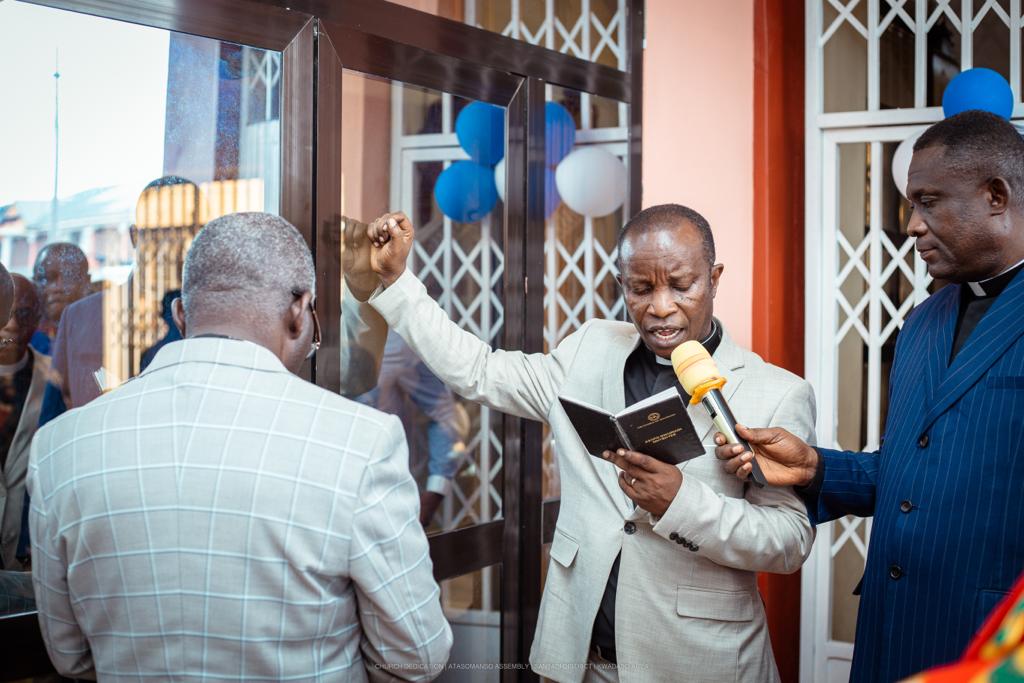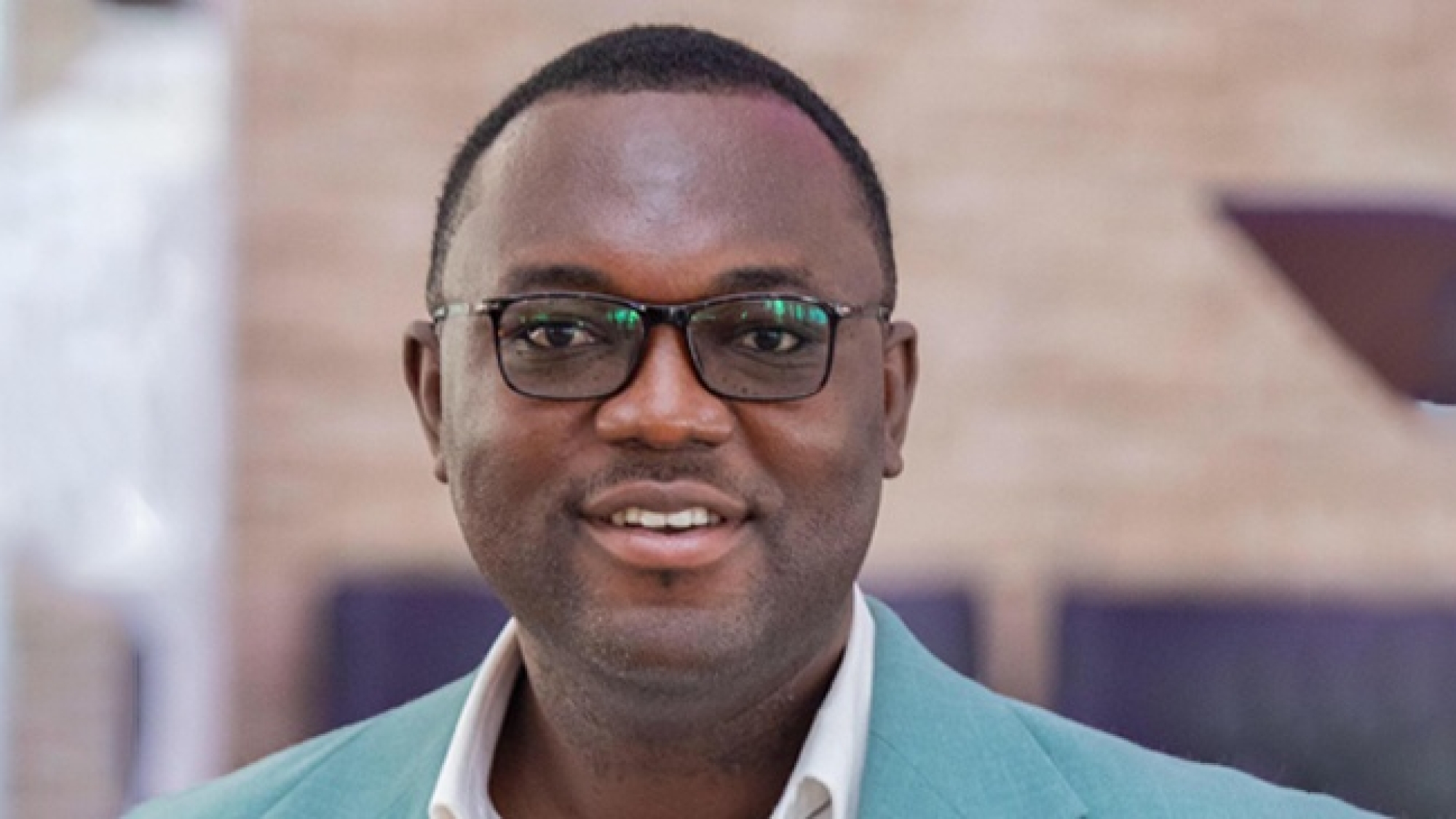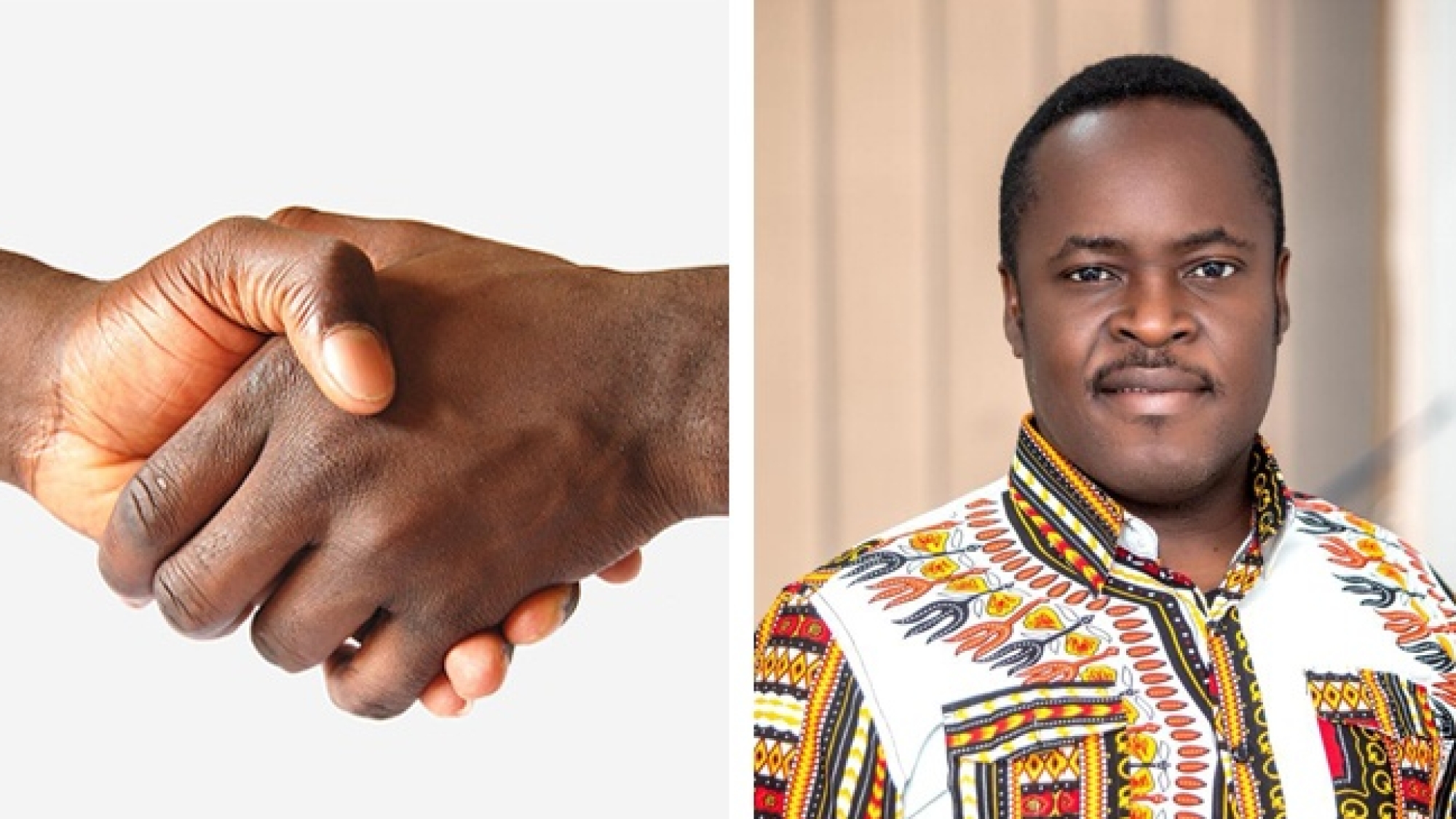Amanda Rowett has defined unforgiveness as a state of emotional and mental distress that results from a delayed response in forgiving an offender. The delay may result from an inability to forgive or one’s unwillingness to forgive an offender. It is almost impossible to reside in this fallen world and relate to people without offending them at any time or vice versa. The Lord Jesus confirmed this assertion in Luke 17:1a when he said, “It is impossible that no offences should come….” Taking offence usually has little to do with right or wrong parties. So, one may be offended due to an obvious wrong done to their persons or pick offence unjustifiably per the matter at hand. It is, therefore, not the justification or lack thereof of an offence but its occurrence.
The offence becomes even more complex when a party expects the other to apologise for a yet-to-be-known and accepted wrong. As you read this article, you might have unknowingly offended your father, who may be struggling to forgive you. You may also struggle to come to terms with and forgive that child of yours who, in your estimation, betrayed you beyond imaginable limits. In most cases, both parties might have picked offence in varying degrees, expecting each other to show a certain level of remorse or apologise. Whichever direction and permutation an offence presents itself, the offended party is expected to let go and forgive the supposed offender. Indeed, only God can best judge the guilty party in any feud when both parties are offended. There are times when the guilty party, owing to their temperament and influence, tends to garner more supporters and instead appears more offended than the guiltless one. In 1 Kings 3:16-28, a story is told of King Solomon’s wise ruling when two prostitutes were at each other’s necks fighting over the ownership of a baby. After Solomon listened to the first lady, the other lady vehemently denied her argument and insisted that she was the rightful owner of the living child. The King finally ordered the dead baby and the one alive to be sawn into two and shared equally among them. At this, the first lady decided to let go and allow her baby to be given to the other if that would save the child’s life and bring peace. The other lady, however, insisted the King cut both babies into two with the sword as he had earlier ordered so that none of them gets anything good out of their litigation. It then became evident that the guiltless one was instead the one who wanted peace and an amicable settlement of the matter at hand. King Solomon ruled, “Give the living baby to the first woman. Do not kill him; she is his mother” (1 Kings 3:27). Therefore, those who instead insist they are so hurt they cannot forgive and quickly let go may even be the culprits who instead need to apologise. The inability or unwillingness for the act of unconditional forgiveness to proceed from the offended to the offender is what the Lord Jesus describes as unforgiveness.
Unforgiveness in father-children relationships has shut down many otherwise lovely households today. Some marriages could have survived today but for the spirit of unforgiveness. Unforgiveness has equally torn apart business partnerships and musical bands in the entertainment industry and hasn’t spared some gospel singing groups either. Ironically, the canker of unforgiveness occasionally rears its ugly head among some para-church organisations and the body of Christ. This has led to rebellion and breakaways from some churches or fellowships.
The adverse effects of unforgiveness are one of the most treated and discussed topics in Christian literature because Jesus, the Master Himself, handled it with many illustrations that resonate with humankind. Unfortunately, it is one area that appears easy to understand but is very difficult when it comes to its application to our lives. It is, therefore, not unusual to see a preacher propagating forgiveness eloquently yet being an inmate in the prison of unforgiveness. Is it not strange to exhibit good understanding and even teach others to forgive when they struggle to forgive those who offend them? Do you think such individuals or groups are happy to find themselves in such embarrassing confinements, which could be best described as self-imposed imprisonment? I do not think so! This article discusses the merits of some biological or spiritual fathers’ reasons for their unwillingness or inability to forgive their children and vice versa. An effort will also be made to outline certain risk factors predisposing people to unforgiveness and proffer suggestions for breaking out of those self-inflicted chains.
A typical example of those who appear unable to let go of their offence and free themselves was Israel’s first King, chosen by God in the person of King Saul. This was a father-spiritual son relationship between Saul and David. After the shepherd boy David risked his life and faced Goliath and killed him in the valley of Elah, he was loved by many, and to climax their excitement and joy, some women in Israel launched an album for him and King Saul. Although the lyrics in the song were not offensive but complementary to both, King Saul took offence at the refrain. It read, “Saul has slain his thousands, and David his tens of thousands” (1 Samuel 18:7). Unfortunately, David had to bear the brunt of the king’s fury even though he was not the producer of the said hit song, meant for celebration in the whole of Israel. Saul was furious and said, “They have credited David with tens of thousands,” he thought, “but me with only thousands. What more can he get but the kingdom?” And from then on, Saul kept a close eye on David” (1 Samuel 18:8-9).
What Saul missed in the song’s lyrics was the possessive pronoun “his.” Unjustifiable in picking an offence on the part of King Saul as it may be, he had already fingered David as the offending party. Meanwhile, a critical analysis of that short but loaded song was a hundred per cent score for King Saul and David. The difference was the quantum of challenges they encountered independently of each other. Be it as it may, the obvious thing King Saul needed to do after winding down and taking a breather was to let go and forgive, even if he thought David had something to do with that song. The Bible, however, was evident in verse 8b that it was Saul’s thoughts and feelings that David had become a threat to his throne (1 Samuel 18:15). For four (4) good years that followed, Saul pursued David to kill him because he appeared so helpless; he just could not let go of his offence and move on.
King Saul made eight (8) attempts to kill David within the period beginning from 1 Samuel 19:8-17 up to 1 Samuel 26:1-8. After his first attempt on David’s life, Jonathan reasoned with his father to prove David’s innocence and why he should immediately cease the evil he had planned against him. Saul appeared to have forgiven David for the yet-to-ascertain wrong done when he replied to Jonathan, “As surely as the Lord lives, David will not be put to death” (1 Samuel 19:6). King Saul, however, found himself pursuing David again in the three verses that followed.
In many instances, David had the opportunity to kill Saul and free himself from the needless trauma he had been subjected to. However, in all of them, he forgave and spared the king’s life. Another instance where David could have killed Saul but chose to spare him was when he told him, “I have not wronged you, but you are hunting me down to take my life.” Saul wept aloud, acknowledging, “You are more righteous than I. You have treated me well, but I have mistreated you… I know that you will surely be king, and the kingdom of Israel will be established in your hands” (1 Samuel 24:11-22). Yet, after a while, the king gathered three thousand troops to search for David again, this time in the desert of Ziph. David again had the opportunity to kill Saul when he fell asleep in the camp. But he forgave him and spared him once more, asking him, “Why is my Lord pursuing his servant? What wrong have I done, and what wrong am I guilty of?” (1 Samuel 26:18). King Saul replied to David, “I have sinned. Come back, my son. Because you considered my life precious today, I will not try to harm you again. Surely I have acted like a fool and have been terribly wrong” (1 Samuel 26:21).
From the three instances outlined, out of the several attempts made to kill David, one can safely conclude that King Saul wished he could easily forgive and let go of his offence against David. However, he appeared helpless and restless in managing that offence. In all these situations, time was running out for Saul to do deep soul-searching and reflection to let go of whatever was disturbing him. It can also be deduced from the above episodes that unforgiveness cannot be concealed, just as forgiveness cannot be faked. The strength to let go was probably not there, and he would not humble himself for Samuel to intervene and pray for him. King Saul, unfortunately, died a miserable death through suicide during a military campaign against the Philistines.
Although David did his best to forgive Saul, his inability may have been pardoned during the Old Testament period due to the inherent weaknesses associated with the Adamic fall. Until the era of Christ and His redemption of humankind through the power of His death and resurrection, it was not uncommon to see people struggling to lead godly lives or forgive each other when wronged. Unforgiveness, therefore, was the default makeup of all who derived their moral strength from the Old or Adamic nature. When Christ started His earthly ministry, He discussed the need for His followers to freely forgive each other to avoid the harmful effects of unforgiveness. He did this before His crucifixion, resurrection, and subsequent empowerment of the Holy Spirit as a precursor to the lifestyle expected of all who submit to His Lordship. Having been freed from all the weaknesses of the Old nature through accepting Jesus in one’s life, forgiveness becomes something within the believer’s power and will to freely express. Therefore, unforgiveness in our New Testament era qualifies to be defined as the unwillingness to forgive one another.
“Then Peter came to Jesus and asked, ‘Lord, how many times shall I forgive my brother or sister who sins against me? Up to seven times?'” (Matthew 18:21). Peter’s question to Jesus came after His disciples had listened to His teachings on this topic for a period of time, which seemed entirely foreign to their emotions. Prior to this, the Lord mentioned it in Matthew 6:12 as He taught the disciples how to pray. Knowing the general mindset of humanity during His visitation to the world, He further explained that phrase in the prayer model in verses 14-15. Therefore, it was not insignificant that out of the six main topical lines He raised in Matthew 6:9-13, He took the time to explain the need to forgive each other when wronged. In addition to many other parables and illustrations to help His followers fully grasp the discussion on forgiveness, Jesus raised the issue again when He said in Matthew 18:15, “If your brother or sister sins, go and point out their fault, just between the two of you. If they listen to you, you have won them over.”
At this point, you can trust Peter to voice out his slightest difficulty in comprehending Christ’s teachings on topics like forgiveness, which sounded good to hear but were uneasy to apply. He followed up with a question to Jesus, “Lord, how many times shall I forgive my brother or sister who sins against me? Up to seven times?” Peter possibly expected his colleagues and Jesus to commend him for exhibiting his understanding of Jesus after almost three (3) years of staying at His feet. He thought it was spectacular for someone who had been a disciple of “an eye for an eye, a tooth for a tooth” to graduate to ignoring and forgiving up to seven (7) times. However, Jesus answered him in verse 22, saying, “I do not say to you, up to seven times, but up to seventy times seven.” Wow! The expression “seventy times seven,” first encountered in Genesis 4:24, is widely accepted to indicate an uncertain, nearly indescribable amount. It amounts to 490 when taken literally, compared to Peter’s best at 7.
To help them fully appreciate the wickedness in the act of unforgiveness, Jesus followed His response to Peter with another illustration titled “The Parable of the Unmerciful Servant.” This parable vividly illustrates those unwilling to forgive and let go of other people’s wrongs. The parable begins with a servant squandering his master’s ten thousand bags of gold. When the servant falls on his knees, asking for forgiveness and time to pay back everything he owes, his master takes pity on him, cancels his debt, and lets him go. This also means that forgiveness is quite manageable when the offender comes forward to apologise to the offended party. However, people do not need to admit and apologise for their wrongs before receiving forgiveness.
It is worth advising everyone to admit and sincerely apologise when convicted of a wrong rather than relying on the maturity of the offended party to forgive automatically. Remember, in Jesus’ illustration, those who admit their wrongs receive more than they bargained for—an outright cancellation of debt instead of the intended repayment or restructuring. The freed servant then encounters a fellow servant who owes him a hundred silver coins after being pardoned. He grabs and chokes him, saying, “Pay back what you owe me!” (verse 28). In today’s terms, what his master freely forgave him was worth 160,000 years of wages, while his colleague servant owed him an amount equivalent to 100 days’ wages. Jesus continues to narrate that this servant’s colleague also falls on his knees, begging for time to repay his debt. The servant refuses his friend’s request and imprisons him until he can pay the debt. When the other servants witness what happened, they are outraged and report the incident to their master. The master, angered by the matter, calls in the servant and says, “You wicked servant! I cancelled all that debt of yours because you begged me to. Shouldn’t you have mercy on your fellow servant just as I had on you?” Jesus concludes that the master has this wicked servant rearrested and jailed until he can repay all he owes. He says that is how His heavenly Father will treat all who refuse to forgive their neighbours from their hearts.
In simple arithmetic, what the wicked servant’s colleague owed him could be approximated to zero, negligible, or nothing compared to what he owed his master and had been forgiven. Indeed, the percentage of what he claimed he would not forgive is almost 0.000002% of the debt he owed his master and was forgiven. It was, therefore, not surprising that Jesus called him a wicked servant. Similarly, when we compare our indebtedness to the devil and how much it costs God through His Son Jesus Christ to pay it for us to enjoy a total debt cancellation, there can be no justifiable reason to deny forgiveness to others who wrong us. It can only be an unwilling and wicked heart that refuses to let go of what others do against them, especially when the matter involves those who profess faith in Christ Jesus with the Holy Spirit dwelling in their hearts. C.S. Lewis once said, “To be a Christian means to forgive the inexcusable because God has forgiven the inexcusable in you.”
King Saul of the Old Testament could argue that he could not easily let go of the offence he picked up with David, his boy. However, the New Testament believer cannot justify their inability to forgive because of the freedom they enjoy from the servitude of sin. It, therefore, lies within the full ambit of a born-again Christian to forgive and let go of any wrong done to them if and only if they wish to do so. Unsurprisingly, Jesus was unequivocal that His Heavenly Father would not forgive the sins of those who refuse to forgive their neighbours. The tragic end of the Unmerciful Servant in Jesus’ parable indicates the destination of all who harbour other people’s wrongs and refuse to forgive them.
Even though some may insist they have forgiven their offenders, any of the following or a combination of some are still indicative of a lack of total forgiveness:
- Sleepless nights thinking and replaying the supposed incident that caused hurt.
- Anxiety disorders when encountering or thinking about the suspected offender.
- Trying hard to explain one’s side of the story.
- Seeking opportunities for repayment or revenge.
- Withdrawing all previous courtesies enjoyed by the supposed offender.
- Becoming petty, impulsive, and blaming others for one’s feelings.
- Exhibiting bursts of anger at the slightest provocation.
Apart from imprisoning those you refuse to forgive, the symptoms listed above demonstrate that unforgiveness ultimately affects one’s physical, spiritual, and mental well-being (Mark 11:25; Hebrews 12:15). Withholding forgiveness is self-imposed imprisonment and self-sabotage, or as Nelson Mandela said, “Hating someone is drinking poison and expecting the other person to die from it.” In fact, you may even be the offender in the case where you probably picked offence. Only a sense of entitlement and self-righteousness would make one feel they are always right. Other risk factors for those predisposed to unforgiveness include pride, selfishness, wickedness, hypocrisy, prayerlessness, insensitivity to the Holy Spirit, hatred, bitterness, anger, and a lack of appreciation for God’s Word.
Jesus’ explicit instruction whenever someone wrongs you is to forgive. If you find it difficult to let go, follow the Lord’s prescription outlined in Matthew 18:15-17. The Lord expects that by the time any Spirit-filled person goes through that procedure, they will have been healed of all hurts and ready to forgive, let go, and move on with their lives. Believers looking forward to Christ’s second coming must, therefore, take a stand and declare the already procured freedom in Christ Jesus over sin and all its weaknesses, appropriating it in every situation they find themselves in. My dear born-again Christian fathers or children, it is not worth the effects of unforgiveness on your physical health and subsequently sharing hellfire with those for whom it has been prepared simply because of your unwillingness to forgive each other. Free yourself now from that self-imposed imprisonment because you are more than able to do so. Let me take this opportunity to wish all fathers a happy Father’s Day. May the gracious Lord continue to crown your every effort with success as you release all you have imprisoned, including your good self, due to unforgiveness. Stay blessed.
Written by Pastor James Agyin





